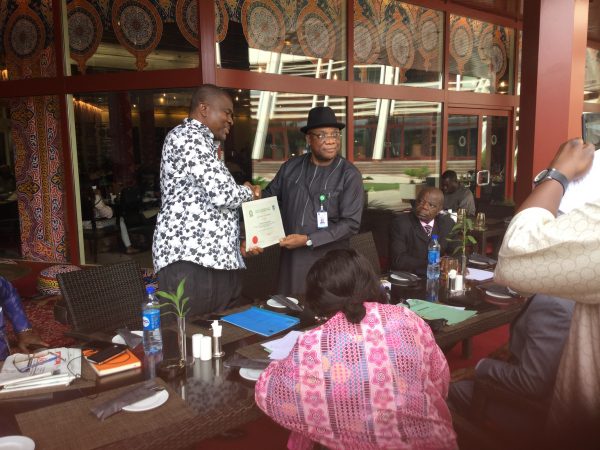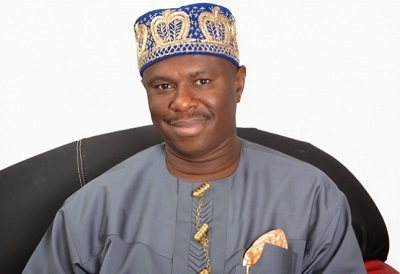Private Jetty Operators Flout FG Directives On Mid-Stream Discharge
 Despite government efforts to stop mid-stream discharge from vessels, private jetty owners have continued to flout this directive, thereby short-changing the authorities in payable revenue.
Despite government efforts to stop mid-stream discharge from vessels, private jetty owners have continued to flout this directive, thereby short-changing the authorities in payable revenue.
Although, there are currently 107 private jetties across the country but only nine designated Customs ports are allowed to handle container operations.
In a statement signed by Emmanuel Ugorji, a maritime stakeholder, apart from the nine designated Customs ports, there are 47 private jetties in Lagos, 32 private jetties in Port Harcourt in River State, 23 private jetties in Warri in Delta State and another five private jetties in Calabar , Cross River State.
He explained that with the number of these of ports and private jetties, the country has no reason not to reap maximum benefits from the sector.
According to Ugorji, “the maritime sector in a country like Nigeria, with large population and vast water bodies is seen as a cash- cow, that is only second to the oil sector judging by the volume of trade and the accruing financial benefits to the government of such nations.”
He was of the opinion that all that the Federal Government of Nigeria needed to do over the years to sustain collectable revenue inflow from transportation, berthing and cargo discharge of vessels was to enforce the policies that have been in existence for many years, boost economic activities in the sector as well as ensure that regulatory agencies enforced rules and regulations without compromise.
The maritime expert noted that Nigeria has a set of good polices guiding the conduct of players in the maritime sector but that the challenge has been the impunity with which operators, especially owners of private jetties collaborate with shipping companies and importers to flout these regulations.
The situation, according to him, is further compounded by the low political will of successive regimes to ensure compliance.
It will be recalled that the midstream discharge of cargoes was banned in May of 2002 via a Presidential circular Ref./No. PRES/99.
In the circular signed by the then President, Chief Olusegun Obasanjo and addressed to the Minister of Transport he said “ I have been briefed on the illegal use to which private jetties are being put nationwide.
“The illegal activities being carried out at these jetties present major risks to the nation and therefore cannot be allowed to continue.
“You are to take immediate steps to close all private jetties by revoking the registration licenses of their operations’’.
Earlier in that same month on May 2, 2002, Obasanjo had sent a circular to the Minister of Transport titled “Stoppage of Mid –Stream Discharge of Cargo’’ in which he said “ I have been informed that Government is currently losing huge revenue as a result of the unwholesome practice of some shipping companies in collaboration with unscrupulous public officials in the maritime Sector’’.
“These practices are not unconnected with mid-stream discharge of cargo.
“In order to put a stop to them, I hereby direct that mid-stream discharge of cargo should cease forthwith, ‘’ Obasanjo stated.
In a follow-up letter, Abdullahi Nyako, the Principal Secretary to the then Vice President forwarded a circular dated June 23rd, 2002 to the Minister of Transport and the Comptroller-General of the Nigeria CcustomsService reminding them of the Presidential letter on the stoppage of mid-stream discharge of cargo and the need to enforce compliance.
Also in move to further stop the issue of Mid-stream discharge, the then Minister of Finance, Nenadi E. Usman in February of 2007 sent a circular directing the NCS boss to stop the illegal activity.
The adamant private jetty operators who have been desperate to play in the big league by directly receive vessels from foreign waters and discharging their cargoes while the Federal Government continue to loserevenue.
On its part, the Federal Ministry of Transportation in a circular to the Managing Director, Nigeria Ports Authority in 2007 and signed by the then Minister of State for Transport (Water), Prince John Okechukwu Emeka observed that the mid-stream discharge and handling of cargo of ocean going vessels at private jetties were being done “in flagrant disregard to Federal Government directive banning midstream and offshore discharge of cargo’’.
Ugorji, however called on the new Minister of Transport, Mr. Rotimi Amaechi to take up the challenge posed by terminal operators in the smooth running of transactions in the maritime sector with a view to ensuring that sanity is restored.







